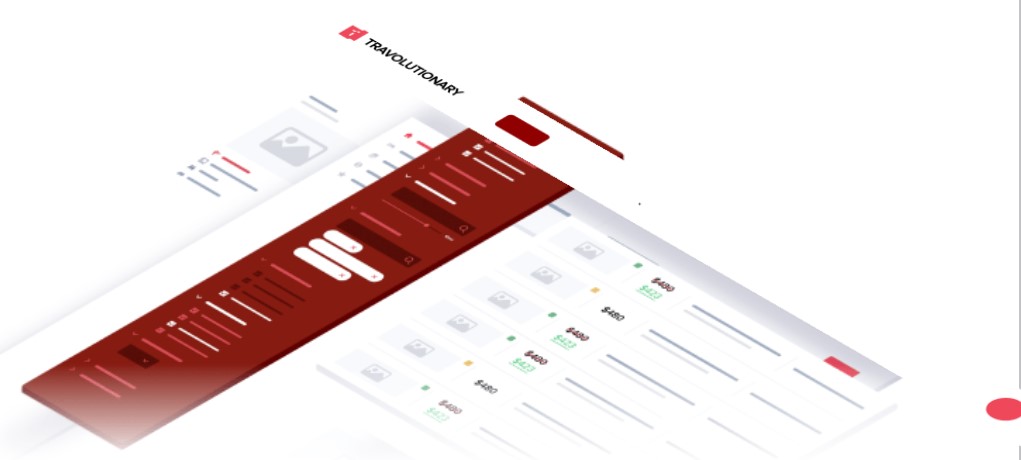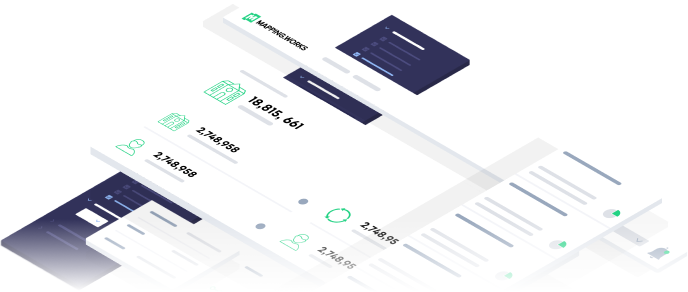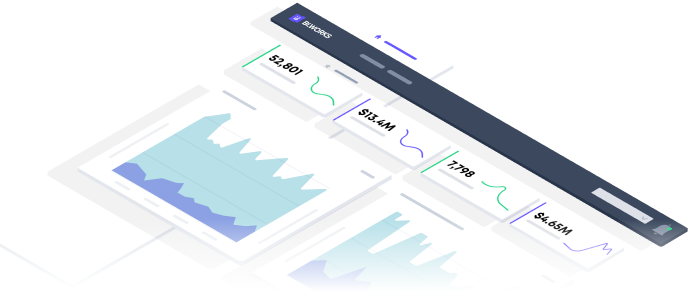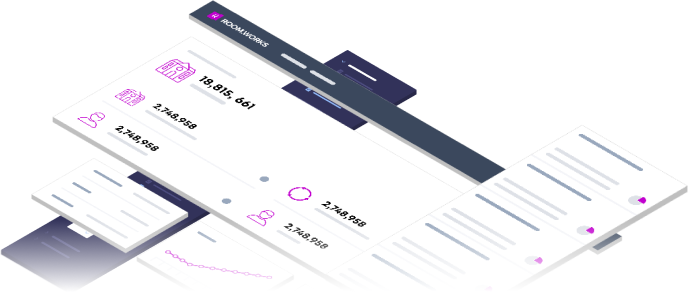What is a Hotel Revenue Management System?
A Hotel Revenue Management System (RMS) is a sophisticated software solution designed to optimize hotel rooms and services’ pricing and distribution strategy to maximize revenue and profitability.
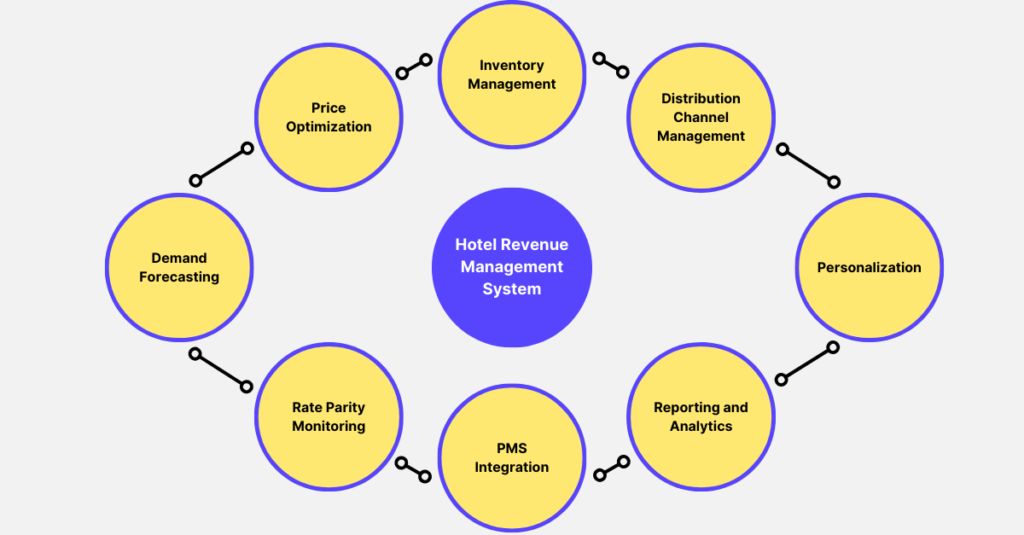
Hotel Revenue Management System Key Components and Functionalities
Demand Forecasting: The Hotel Revenue Management System utilizes historical data, market trends, and predictive analytics to forecast future demand for hotel rooms. This includes analyzing factors such as seasonality, local events, competitor pricing, and economic indicators.
Price Optimization: Based on demand forecasts and other relevant data, the RMS recommends optimal pricing strategies for different room types, packages, and ancillary services. It may employ dynamic pricing algorithms to adjust rates in real-time based on changing market conditions and booking patterns.
Inventory Management: The Hotel Revenue Management System helps hoteliers manage their room inventory effectively by allocating the right room types to the right customer segments at the right prices. It considers booking pace, length of stay, and overbooking risk to maximize occupancy and revenue.
Distribution Channel Management: The RMS evaluates the performance of various distribution channels, including direct bookings, online travel agencies (OTAs), global distribution systems (GDS), and metasearch engines. It helps hoteliers allocate inventory to the most profitable channels and optimize commission costs.
Segmentation and Personalization: By segmenting customers based on factors such as demographics, booking behavior, and preferences, the RMS enables targeted marketing and pricing strategies. It may also facilitate personalized offers and promotions to drive direct bookings and enhance guest satisfaction.
Reporting and Analytics: The Hotel Revenue Management System generates comprehensive reports and analytics to track key performance indicators (KPIs) such as revenue per available room (RevPAR), average daily rate (ADR), occupancy rate, and market share. These insights enable hoteliers to assess the effectiveness of their revenue management strategies and make data-driven decisions.
Integration with Property Management System (PMS): Seamless integration with the hotel’s PMS allows the RMS to access real-time data on room availability, reservations, guest profiles, and billing information. This integration ensures accurate forecasting and efficient management of inventory and pricing.
Rate Parity Monitoring: The Hotel Revenue Management System monitors rate parity across different distribution channels to ensure consistent pricing and prevent rate undercutting, adversely affecting the hotel’s brand reputation and revenue potential.
Alerts and Notifications: The RMS provides alerts and notifications to hoteliers regarding significant changes in market conditions, booking patterns, or competitor strategies. This proactive approach allows them to respond quickly and adjust their pricing and distribution strategies accordingly.
Conclusion
A Hotel Revenue Management System serves as a strategic tool for hoteliers to optimize revenue and profitability by effectively managing pricing, inventory, and distribution in a dynamic and competitive market environment.

